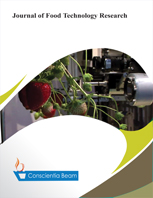Oil extraction through hydraulic pressing from Cambodian soybean seeds and analysis of its physicochemical quality
DOI:
https://doi.org/10.18488/jftr.v10i4.3545Abstract
The objective of this study was to investigate the effects of hydraulic pressing conditions on the extraction yields of Cambodian soybeans using hydraulic press machine. The extraction of soybean oil through hydraulic pressing is a chemical-free mechanical method that involves the compression of the soybean seeds using heat and pressure. The different pressures (30, 40, and 50 MPa) and pressing times (15, 20, 25, 30, 40, 50, and 60 min) were performed on the extracted soybean oil yield. The physicochemical properties and fatty acid profiles of the extracted soybean oil were also analyzed. The physicochemical properties such as peroxide value, iodine value, acid value, and color were determined by AOAC methods. And the fatty acid profiles, including linoleic acid, oleic acid, linolenic acid, palmitic acid, and steric acid, were characterized by gas chromatography with a frame ionization detector. The results demonstrated that the highest yield of 12.49% was achieved at a pressure of 50 MPa and a pressing time of 60 min. The crude soybean oil obtained exhibited acceptable physicochemical quality and fatty acid profiles. The fatty acids of soybean oil were found to be rich in unsaturated fatty acids, with 52.69% of linoleic acid and 25.24% of oleic acid. However, it is important to note that this study has limitations, and further research should investigate additional factors, particularly the effect of temperature in hydraulic pressing, to optimize oil yield.

